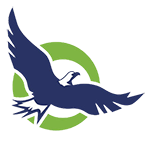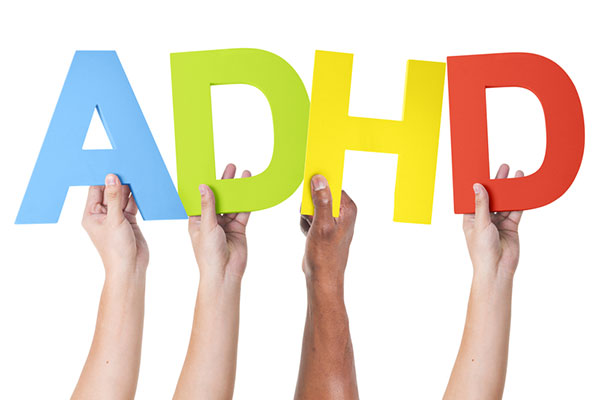Read the detailed description of Quest's Summer Camp information!
Read Our Latest Announcement!
Sincerely,
Jodie Knott, Ph.D.
Director and Licensed Psychologist
Quest Therapeutic Camps of Southern California
Differences for Children with ADHD Regarding Failure and How to Help Them
Being able to try new challenges, deal with failures and keep trying are key aspects of resiliency and later success. Researchers have just found critical differences between how children with attention difficulties handle failure and punishment, which affects their willingness to even try tasks and how willing they are to sustain in activities.
In addition, how are we as parents, educations, and treatment professionals intervene and approach children with ADHD can dramatically impact them as well.
Children who have ADHD benefit from individual, positive feedback. This form of reinforcement is important in the development of the child’s self-esteem, and aids them in pushing past failures.
“Impulsive behaviors, academic struggles, and social challenges may cause parents and teachers to critique these children more often than they do others. Some experts, like William Dodson, M.D., estimate that children with ADHD receive a full 20,000 more ‘negative messages’ in their lifetimes, on average. Now, research indicates that children with ADHD may not just receive a disproportionate amount of criticism-they might also be more sensitive to it, thereby avoiding situations where they may be criticized or punished.” [1]
A team of researchers at the Okinawa Institute of Science and Technology Graduate University found that children with ADHD may also be more sensitive to criticism. This may cause the child to be reluctant in participating in activities, to prevent receiving negative feedback. The researchers noted that in past studies children were likely to abandon the activities if they were to lose too many points. Developing a game that had enough rewards and less punishments encouraged the children to continue playing. [2]This study really spoke to me this month and we have posted the article in its entirety on our Facebook page. The reality is that it is a challenge for parents, educators, and mental health professionals since children with attention difficulties need clear feedback and more instruction in certain areas than their peers in order to draw some connections and make needed growth–and at the same time these corrections can cause children to be more sensitive and avoid the exact opportunities for growth that they need. What I find is that children NEED to be supported and encouraged and that children with attention and learning difficulties NEED this is large quantities.
The research holds consistently for positive parenting interventions that include 5 positive comments for every 1 negative correction. This is just as true for children with ADHD. The trick is that we as the adults have to work harder to make this happen to stay on track to look for positives and be paying attention since when you are making more corrections you need to find more positives to keep the same 5 to 1 ratio. This can be really challenging when you are feeling overwhelmed or your child just had a major meltdown, but even in those moments there are so many legitimate positives and silver linings to be found and highlighted.
The other key is to have high levels of rewards and bonuses. The researchers discuss this challenge a little bit above. It has been found that kids with attention difficulties typically need 4 to 5 times more rewards than other children since their brains work differently. These rewards often help flood dopamine to key areas in the brain, which can often have great benefits. While basically all children do well with incentives, these rewards are critical for children with ADHD.
At Quest, I have seen how the combination of creating an environment that truly sees the strengths and positive aspects of each child (even in their difficult moments) and how by offering lots of bonuses across different reinforcement systems helps children try new things, deal with disappointments, sustain their efforts, and learn many new skills over time. This dynamic creates an atmosphere in which children often surprise themselves and their parents because they have far surpassed both their own and their parents expectations.
UPCOMING PROGRAMMING
School Year Programming
School year therapy groups are ten-week afternoon therapeutic groups that are designed to provide therapy by specifically targeting individualized goals for our campers.
A minimum of one hour includes therapeutic activities that heavily target the development of social skills, emotion regulation, and positive behaviors, while the next hour focuses on further skill development by providing a variety of experiential activities as part of a group to create opportunities to observe the child in a natural setting and intervene to facilitate change. Some quarters provide a special emphasis to improve skills, while other quarters have a more general offering based on the campers’ interests and often include programming in areas such as video game making, drama, art, movie making, etc.
Winter Group Dates are:
January 4th – March 8th
Wednesday Evenings 5:30 to 7:30
at the Central Library in Huntington Beach
Summer Programming
Quest’s intensive summer program offers 7 weeks of programming (6 weeks of day camp and 1 week of residential). The summer program includes individualized behavior plans, group therapy, occupational therapy, a social thinking curriculum, mindfulness activities, yoga, soccer, games in the park, and field trips (beach, boomers, rock climbing, ropes course, bowling, etc.) to create a fun and engaging, therapeutic camp experience for children.
Weekly parent meetings are also included. The summer program has been found across multiple studies to significantly reduce hyperactivity, impulsivity, aggression, and inattention, while improving peer relations, family relations, athletic competency, behavioral control and self-esteem. Quest has also been found to improve social awareness, social cognition, social communication, and social problems.
Summer Camp Dates are:
June 26 through August 10th

